The historic agreement between Vietnam and the US at the 2025 ASEAN Summit is raising hopes for a strong boost for Vietnamese goods, especially tuna products. The most important highlight is the possibility that some tuna products will enjoy a 0% reciprocal tax rate when exported to the US market.
According to Ms. Nguyen Ha - tuna market expert of Vietnam Association of Seafood Exporters and Producers (VASEP), in the list of products that are likely to have their taxes adjusted, there are key Vietnamese products such as frozen tuna loin/fillet (HS code 03048700) and processed tuna products serving the food service industry.
"If these product groups are truly exempted from tax, this will be an important boost to help Vietnamese tuna increase its competitiveness in the US market," Ms. Ha analyzed.
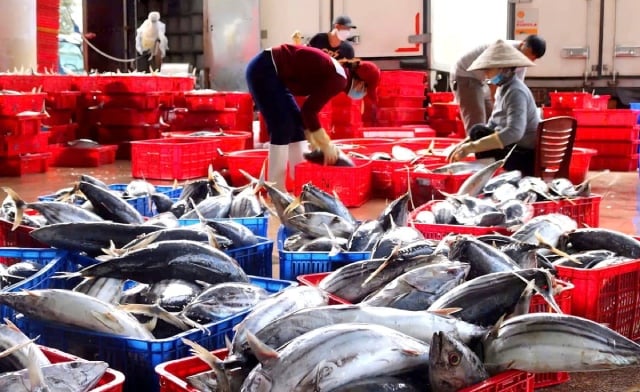
It is possible that some tuna products will enjoy a 0% reciprocal tax rate when exported to the US market under the Vietnam - US Reciprocal, Fair and Balanced Trade Agreement.
The US is currently the largest tuna import market of Vietnam, but the selling price is always affected by logistics costs and high tax rates. Reducing the tax to 0% will help Vietnamese products compete more fairly with big rivals such as Ecuador, Thailand or the Philippines, especially in the high-quality product segment.
However, this opportunity does not come easily. Ms. Ha warned that the specific list of preferential products has not been announced in detail by the US side. More importantly, accompanying conditions such as rules of origin, traceability and sustainability standards will be significant barriers.
"Over the years, the Vietnamese tuna industry has faced increasingly stringent requirements from the US regarding combating illegal fishing (IUU), protecting marine animals (MMPA), and supply chain transparency. If these criteria are not met, businesses will find it difficult to take advantage of tariff benefits," Ms. Ha emphasized.
In addition, the bilateral trade environment remains volatile. The zero-tax policy will likely only be applied selectively, giving priority to products that clearly demonstrate the element of "fair reciprocity".
In that context, Vietnamese tuna exporting enterprises are strongly shifting to value-added products such as loin, fillet and large-scale processed tuna. This is considered a suitable strategy, not only helping to increase profits but also meeting the green and sustainable consumption trend in this demanding market.
It is forecasted that in the next 6-18 months, if the 0% tax policy is applied, tuna exports to the US may grow again after a period of stagnation. However, the ability to successfully take advantage of this "window of opportunity" will depend entirely on whether businesses seriously invest in traceability systems, standardize processes and build national brands.
"The opportunity is huge but it does not naturally become an advantage. If businesses do not standardize the supply chain, be transparent about raw material sources and ensure IUU compliance, then the 0% tax will still only be an opportunity on paper," concluded a VASEP expert.
Source: https://doanhnghiepvn.vn/kinh-te/thach-thuc-nganh-ca-ngu-truoc-co-hoi-mien-thue-vao-my/20251104091737009


![[Photo] The road connecting Dong Nai with Ho Chi Minh City is still unfinished after 5 years of construction.](https://vphoto.vietnam.vn/thumb/1200x675/vietnam/resource/IMAGE/2025/11/04/1762241675985_ndo_br_dji-20251104104418-0635-d-resize-1295-jpg.webp)

![[Photo] Ca Mau "struggling" to cope with the highest tide of the year, forecast to exceed alert level 3](https://vphoto.vietnam.vn/thumb/1200x675/vietnam/resource/IMAGE/2025/11/04/1762235371445_ndo_br_trieu-cuong-2-6486-jpg.webp)
![[Photo] Ho Chi Minh City Youth Take Action for a Cleaner Environment](https://vphoto.vietnam.vn/thumb/1200x675/vietnam/resource/IMAGE/2025/11/04/1762233574890_550816358-1108586934787014-6430522970717297480-n-1-jpg.webp)
![[Photo] Panorama of the Patriotic Emulation Congress of Nhan Dan Newspaper for the period 2025-2030](https://vphoto.vietnam.vn/thumb/1200x675/vietnam/resource/IMAGE/2025/11/04/1762252775462_ndo_br_dhthiduayeuncbaond-6125-jpg.webp)

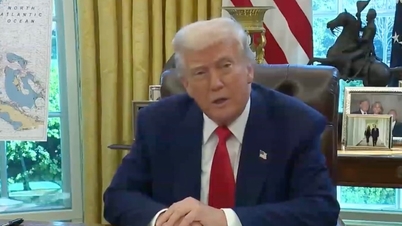



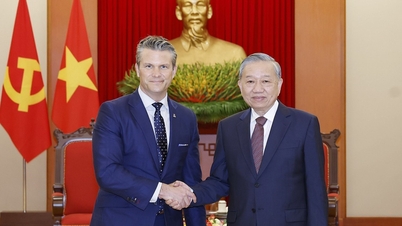


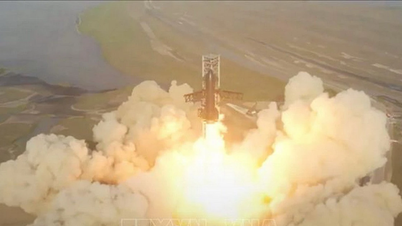



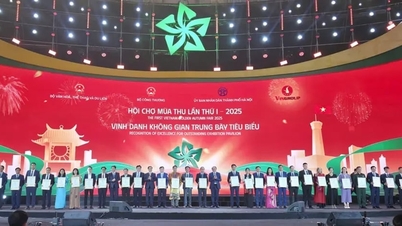
















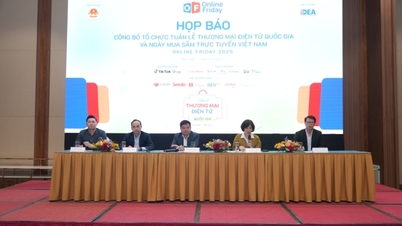

















































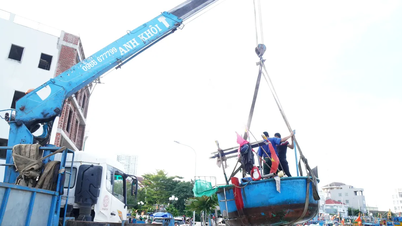
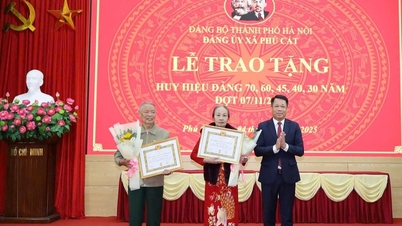

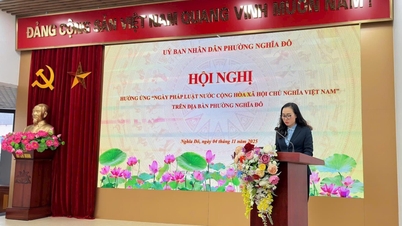
















Comment (0)